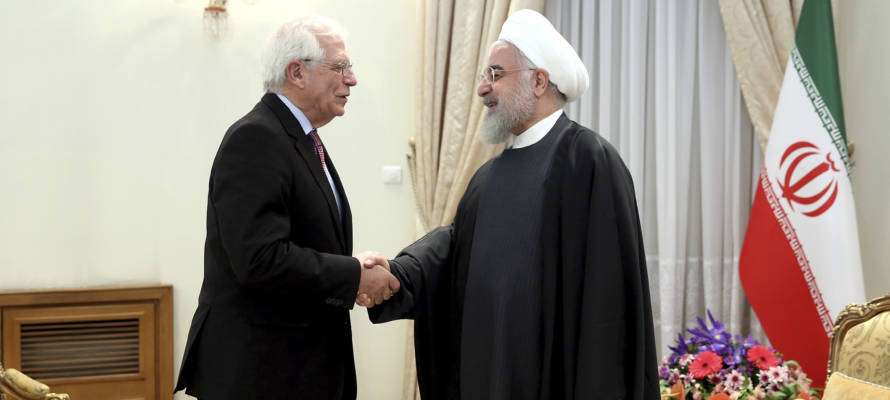Austrian Foreign Minister Alexander Schallenberg says his country rejects “prejudice” against the Jewish state, and calls for dialogue with Israel’s new government.
By Israel Hayom via JNS
Hungary and Austria on Wednesday warned their counterparts in the European Union against endorsing a double standard against Israel with regard to E.U. resolutions.
Budapest and Vienna have consistently been the sole opponents of the harsh criticism expressed by E.U. foreign policy chief Josep Borrell against the Jewish state since Israel’s government said it plans to go ahead with plans to apply Israeli law to large parts of Judea and Samaria.
Borrell said last week that he will explore the option of imposing sanctions on Israel if it goes through with the move, which is endorsed by the United States.
The 27-nation European Union decides on foreign policy moves by consensus, but Borrell has repeatedly disregarded the opposition of a minority of member states to his threats against and condemnations of Israel.
Borrell, with the support of 25 E.U. member states, recently issued a statement saying, “We strongly urge Israel to refrain from any unilateral decision that would lead to the annexation of any occupied Palestinian territory and would be, as such, contrary to International Law.”
Austrian Foreign Minister Alexander Schallenberg said his country rejects “prejudice” against Israel and called to hold a dialogue with the new government, according to the Austrian news site Kurier.
The Jerusalem Post reported that Austria and Hungary urged Borrell to invite Israeli Foreign Minister Gabi Ashkenazi to the E.U. Foreign Affairs Council meeting on Friday.
The Israeli Foreign Ministry criticized Borrell’s “megaphone diplomacy.”
“We called for a gradual approach of caution, not rushing forward and certainly not alienating Israel,” a Hungarian source said. “We believe Israel is a really important strategic partner in the Mediterranean region.”
Belligerent Rehetoric
Borrell’s belligerent rhetoric does a disservice to the European Union, especially if it wants to be taken seriously by Israel and the United States as a player in the Middle East peace process, a ministry official said.
Hungary and Austria opposed Borrell’s previous statements against Israel, including one that said that the application of Israeli law to the Jordan Valley and parts of Judea and Samaria “would not go unchallenged,” which Israel’s Foreign Ministry described as a threat.
Also on Wednesday, French Ambassador to the United Nations Nicolas de Riviere warned Israel that any annexation move “would not be without consequences to the E.U. relationship with Israel.”
Annexation “would be detrimental to Israel’s role in the world, to its integration in its regional environment, as well as to Israel’s relationships with its partners,” he said.
Belgian Ambassador to the United Nations Marc Pecsteen told the Security Council that his country remained “deeply concerned” about the portions of Israel’s coalition agreement that would allow the country to extend its law to Jewish communities in Judea and Samaria as early as July.
“We call on the international community to exert all efforts to prevent any such steps,” he said.
U.S. Ambassador to the United Nations Kelly Craft called on Israelis and Palestinians to return to the negotiating table.
“If both sides are serious about their talking, it is time for both sides to prove it,” she said.
Craft told the UNSC that statements of “concern” would not resolve the Israeli-Palestinian conflict.
“This council cannot dictate the end to this conflict,” she said. “We can only encourage the parties to sit down together to determine how they wish to make progress.”
This article first appeared in Israel Hayom.










